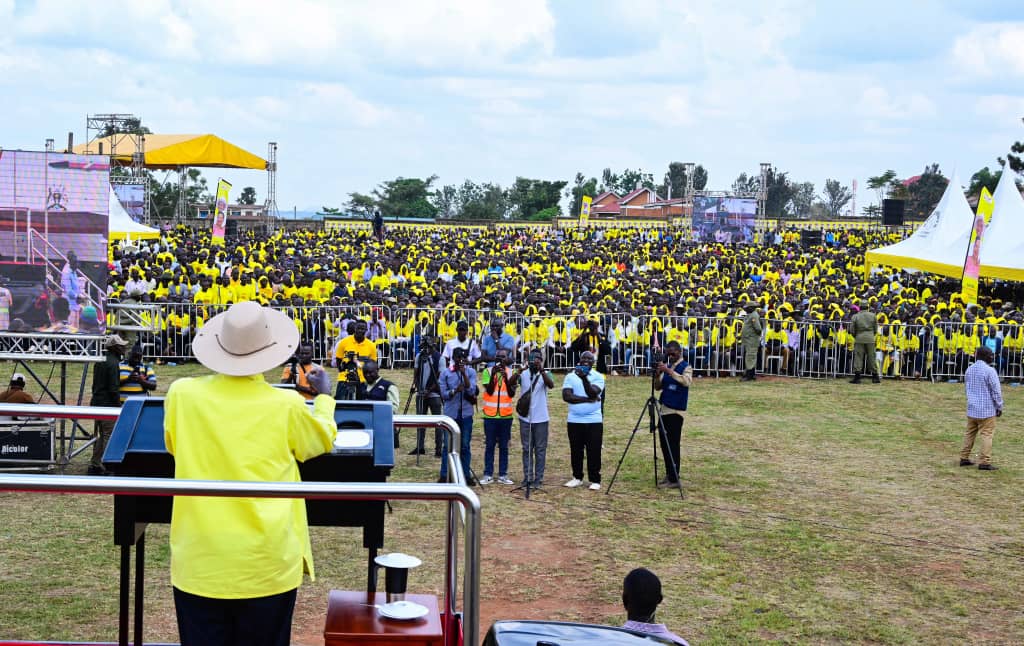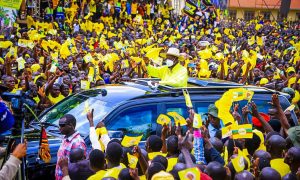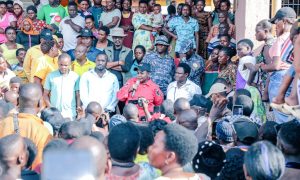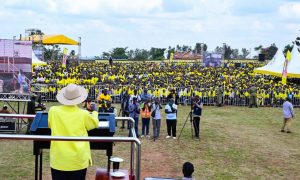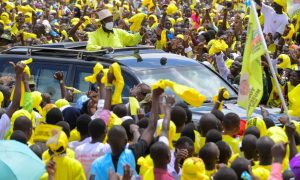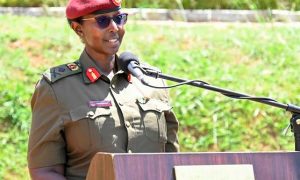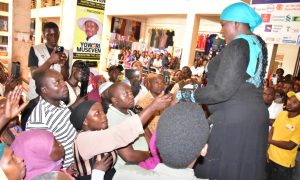A renewed call for disciplined leadership and economic consolidation took centre stage in Mbale on Sunday as President Yoweri Kaguta Museveni met National Resistance Movement (NRM) leaders from the Bugisu sub-region, outlining what he described as Uganda’s most significant economic transformation since 1986.
President Museveni, who chaired the engagement attended by district leaders, LC executives, village chairpersons and party flag bearers, said Uganda’s economic size has expanded twentyfold under NRM stewardship and projected that the country’s total output will hit USD 66 billion by June next year—up from USD 3.9 billion when the party took power nearly four decades ago.
He attributed the growth to deliberate and sustained government investment in industrialisation and infrastructure.
“The size of Uganda’s economy has grown from 3.9 billion dollars to what will be about 66 billion dollars by June next year,” he said, adding, “That means the economy has grown more than 20 times. That is real progress.”
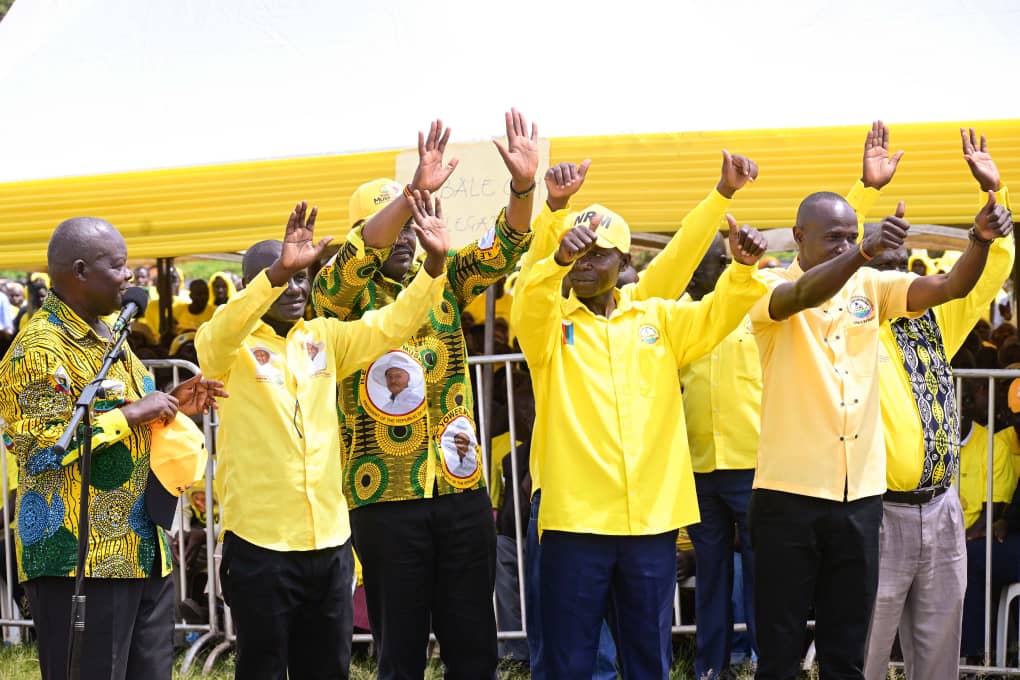
The meeting was convened by Rt. Hon. Anita Among, the NRM 2nd National Vice Chairperson (Female), and Rt. Hon. Richard Todwong, the Party Secretary General, who said the session aimed at enhancing coordination within party structures and ensuring that communities are properly informed about government development programmes.
Museveni, speaking as Chief Guest, urged leaders to uphold honesty, discipline, and vigilance in monitoring government projects, stressing that mismanagement and lax oversight undermine public confidence and service delivery.
“I want you, the leaders, to monitor government projects closely and promote leaders who are committed to development,” he said.
He noted that industrial growth remains one of the strongest engines of Uganda’s economic expansion. The President pointed to districts such as Kamuli, Mukono, Matugga and Jinja as examples of areas where factories have multiplied, creating massive employment and reducing dependency on imports.
He said Kamuli alone has expanded its industrial workforce from just 2,000 people in 1996 to over 44,000 today.
“These are factories producing things that used to come from outside. Now everything is coming from here,” he said.
He added that even the vehicle manufacturing sector has taken shape, with Uganda now producing vehicles in Jinja—a shift he said has forced international manufacturers to rethink their approach.
“I told the Japanese to come and assemble vehicles here but they refused. When we started making our own vehicles, they came running.”
The President also underscored the importance of electricity as the backbone of industrialisation, crediting major projects such as the Karuma Hydropower Plant—which generates 640 megawatts—for stimulating factory growth.
“Without electricity, we wouldn’t have these factories,” he said, explaining that long-term investments in energy must take precedence over recurrent budget pressures such as salary increments. “If you increase salaries before building the infrastructure, you will never build the infrastructure.”
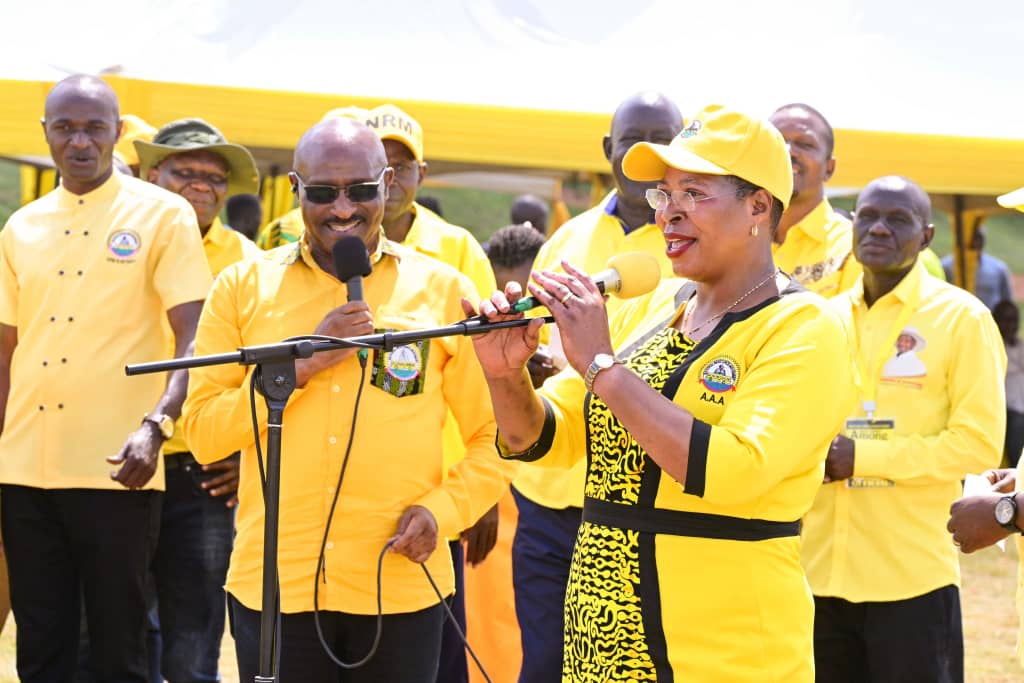
On improving household incomes, Museveni urged leaders to champion value addition in agriculture, insisting that farmers cannot escape poverty by selling raw produce.
He reaffirmed the importance of programmes such as the Parish Development Model (PDM), NAADS and Operation Wealth Creation, which he said are designed to lift families into the money economy.
The President further cautioned leaders against undermining government programmes for personal or political gain, warning that misinformation and internal sabotage weaken the party’s agenda.
“Some people distort facts and mislead the public,” he said. “But we in the NRM have the correct strategy. That is how we defeated many groups even when we were only 27 fighters. We know what we are doing.”
Several senior party leaders vowed to intensify mobilisation across Bugisu to secure an overwhelming mandate for the NRM in the forthcoming elections.
Secretary General Richard Todwong used the occasion to remind LC1 leaders and village chairpersons of their responsibility as frontline mobilisers.
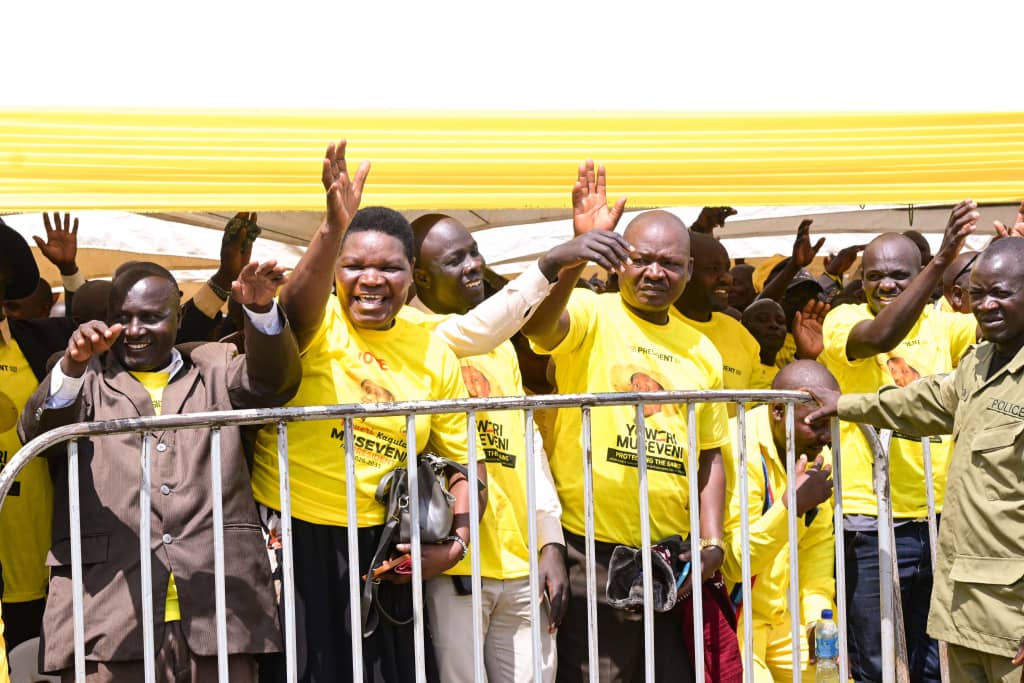
He said leaders must understand the social and economic conditions of households under their jurisdiction, noting that the President has often described a leader as a “social doctor” whose role is to observe, listen, and guide the community.
“Every LC1 must know the households within their area and understand the issues affecting the people,” Todwong said.
He added that grassroots leaders should lead by example: “Your home should reflect productivity, hospitality and peace. When your home shows these values, the neighbours will learn from you.”
Todwong encouraged leaders to rally behind NRM flagbearers, warning that poor mobilisation could affect both party candidates and LC leaders themselves.
“By voting for all our flagbearers, you help secure your own votes,” he said. He formally dedicated the flagbearers to President Museveni and pledged to support them as they prepare for a decisive election.


